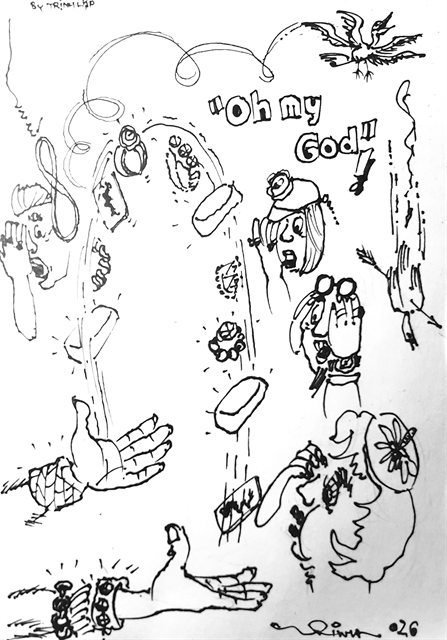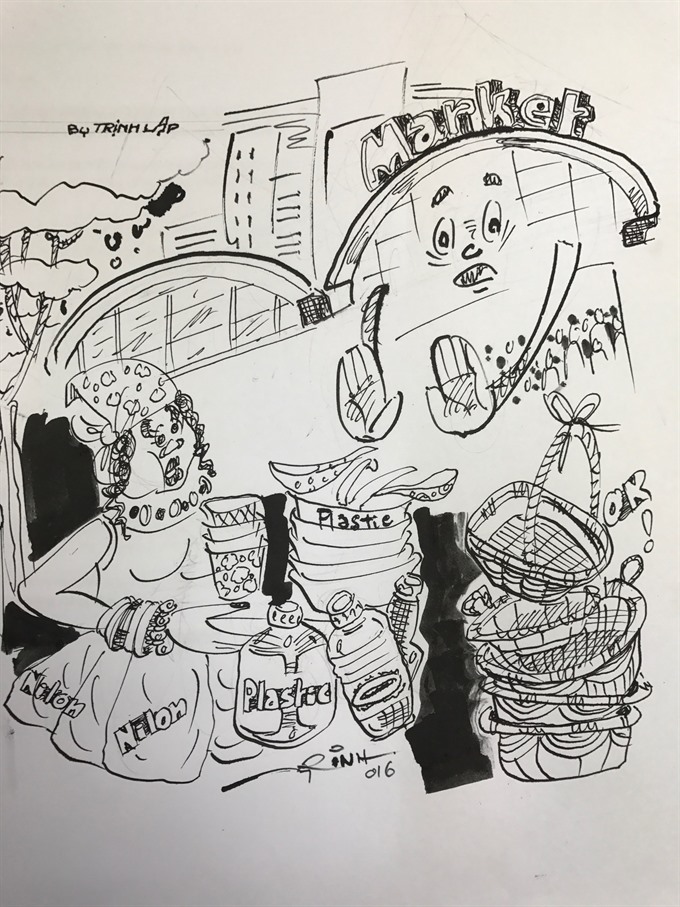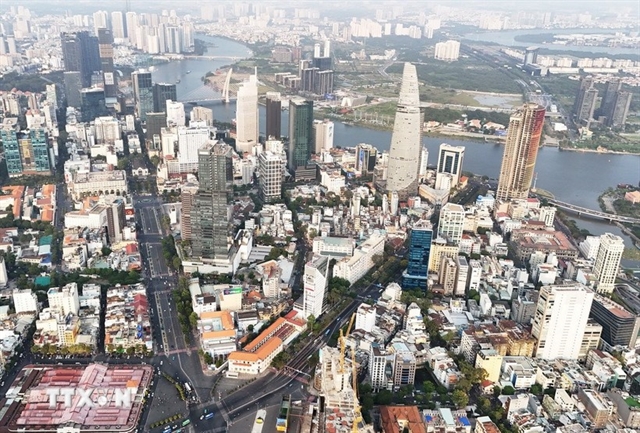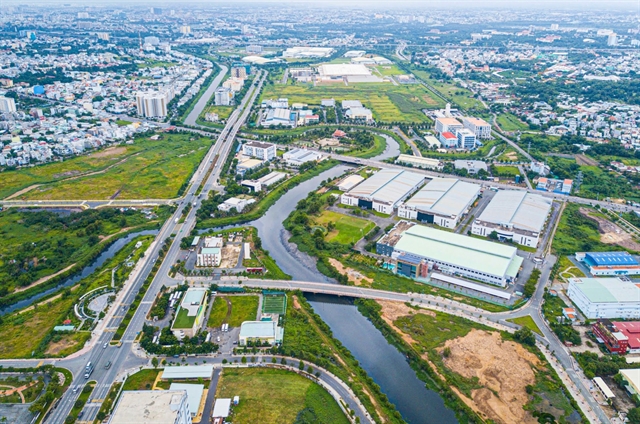 Talk Around Town
Talk Around Town

In Hà Nội, more and more people are aware of the need to live sustainably and start to use environmentally friendly items.
 |
By Hồng Vân
One October day, one of Hà Nội’s air monitoring stations showed that air pollution had reached dangerous levels.
The result went viral on social networks. Though it was based on only one specific place and at a specific time, concern grew about the quality of environment in the capital city.
It also prompted some soul searching.
“The recent environmental problems and its visible impacts are really upsetting. It made me re-think my consuming habit,” said Nguyễn Thu Huyền, an accountant.
One of the things Huyền did was to start using biodegradable bags and items made of natural materials like rattan fruit trays, toothpick containers and lamps, avoiding plastic items.
“I think it’s time for us to break the habit of using plastic goods for the sake of our environment. It’s irresponsible to use plastic extravagantly and have future generations bear the consequences,” said Huyền.
Đỗ Thị Hồng Nhung, a high school student, was also on the same page. “Given that plastic takes hundreds of years to decompose, it was shocking to hear that Việt Nam is ranked among the top five plastic dumping countries in the world.
“I decided that I would do something,” Nhung said.
The 18-year-old student called on her friends to go around in the area they lived and collect used plastic items like oil and water bottles to make beautiful lampshades for sale. They also went to some high schools to campaign and raise awareness among other students.
“Change should start from an early age. I hope our small acts will help young people adopt a greener lifestyle,” said Nhung.
Culture lecturer Nguyễn Việt Hà said young people seem to be more aware of environmental problems and the need to use eco-friendly items as they have more access to information feel the need to lead a healthy lifestyle.
Many clothing shops and take-away food shops have begun to use paper bags, both for the environment’s sake and as an advertisement for their business.
“Our shop has been using paper bags and other packaging with recycled materials for the last few years. Using a paper bag with our own design gives us professional look and adds value to an item,” said Nguyễn Phương Anh, a clothing shop owner.
Huyền, who went to different corners of the city to find rattan items for her house, recalled: “In my childhood, fruit trays, baskets and chairs made from bamboo were very common in countryside. My grandmother even wove bamboo baskets and fans by herself, because we hardly afforded any plastic items.”
However, due to low prices and convenience, plastic bags are still widely used in markets, grocery stores, shops and by street vendors.
It is estimated that each Vietnamese household uses five to seven plastic bags per day. Hà Nội releases more than 300 tonnes of plastic waste per day, according to Deputy Head of General Bureau of Environment, Hoàng Dương Tùng.
While some people have begun limiting the use of plastic bags by reusing them, it is still difficult for them to shift to actually reusable bags. Many plastic bag workshops find ways to avoid paying taxes so they remain the cheapest packaging option for most people.
Tùng said that the willingness of each individual to minimise the use of plastic can result in remarkable improvement.
The Hà Nội administration is also taking some action. More than one million new trees are being planted on the city’s streets and policemen have been required to patrol on bicycles since last year.
Biking is a good solution for the traffic jams that the city suffers, as well as the problem of environmental pollution caused by exhaust from a great number of cars and motorbikes in big cities like Hà Nội.
Starting in May this year, Hà Nội opened the first free charging stations on Thái Hà, Bà Triệu and Điện Biên Phủ streets to encourage the use of electric bikes. In recent years, due to reasonable prices, convenience and the belief that they are eco-friendly, the number of electric bikes have risen sharply in Hà Nội.
However, Dr Nguyễn Đình Hòe, a geologist with the Việt Nam Association of Nature and Environment Protection, said electric bikes may not be as eco-friendly as advertised. The rechargeable battery in electric bikes contains lead, which is harmful to environment. Every year, this vehicle releases thousand of tonnes of lead and millions of plastic accumulator containers in the environment, Hòe said.
“To me, protecting the environment should be practical and regular. Some spend money to buy environmentally-friendly products, but still litter,” said Nguyễn Ngọc Lan, a university student.
There is still a lack of effective communication and access to information about environmentally-friendly items, their benefits, availability and cost-effectiveness.
While the increasing awareness of environmental problems and the willingness to use more eco-friendly products are welcome developments, how far people are willing to go in changing their attitudes and lifestyles, is not clear yet.
The Government also needs to be far more proactive in this regard, banning the use of products and materials that harm the environment.
Small starts have been made, but they will not make much of a difference if it is not built upon in a big way, because the environmental problems we face are far more serious than acknowledged. — VNS




